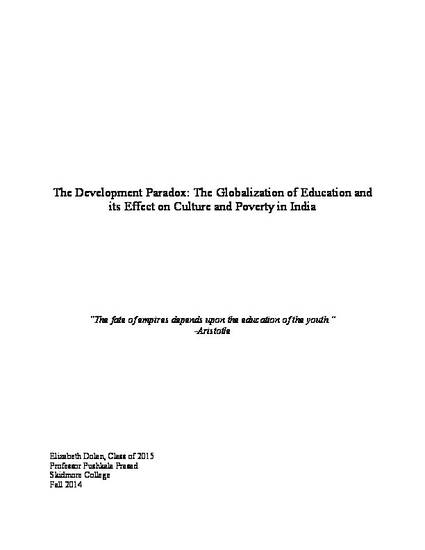
Thesis
The Development Paradox: The Globalization of Education and its Effect on Culture and Poverty in India
(2015)
Abstract
Education has become a formally recognized strategy for poverty alleviation due to its potential to increase human capital production and therefore contribute to overall economic growth. Within the context of the modern development paradigm, educational institutions serve to perpetuate dominant western values through the diffusion of modern knowledge systems. This results in a mismatch between the conceptualization of development and progress and alternative knowledge systems that do not adhere to the globalized value systems emphasizing economic growth. This mismatch has lead to what is referred to here as the development paradox: within the context of globalization, development strategies targeting poverty alleviation overlook localized social and economic factors that not only contribute to a population’s socio-economic status but also define and give meaning to alternative ways of life. Therefore, the modern development model, as is imposed and perpetuated through the processes of globalization, effectively isolates and marginalizes populations that do not conform to western values and ideologies, leaving these groups at an economic disadvantage and invalidating localized cultural experience.
Disciplines
Publication Date
Spring 2015
Degree
Bachelor of Arts
Field of study
International Affairs
Citation Information
Elizabeth Dolan. "The Development Paradox: The Globalization of Education and its Effect on Culture and Poverty in India" (2015) Available at: http://works.bepress.com/elizabeth-dolan/2/